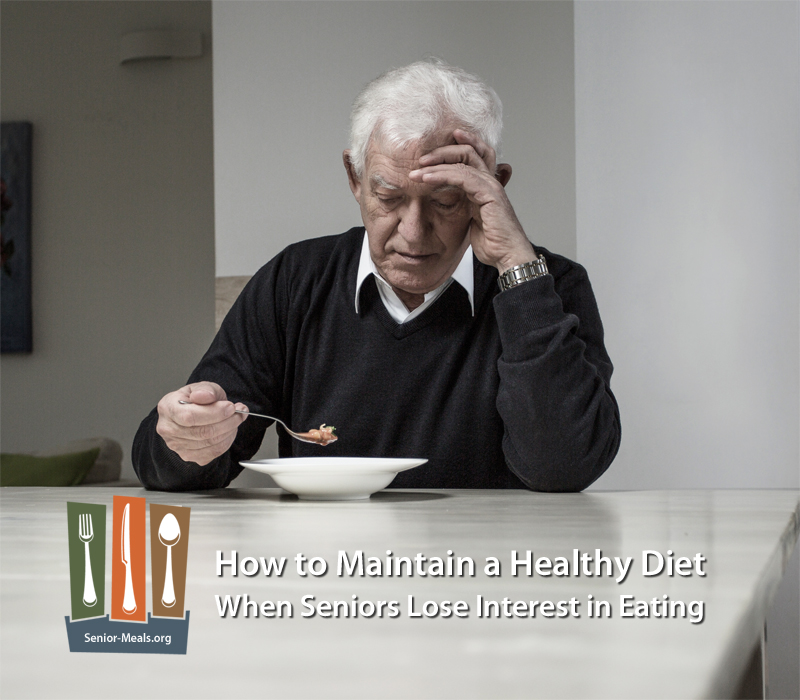Maintaining Healthy Senior Diet
Every age group needs to eat a balanced diet, but for the elderly, this is often a problem. Many seniors struggle to stay a healthy weight or suffer from health issues related to a lack of nutrients. It is essential to understand why this happens and how to help.
Eating is Difficult
The most straightforward reason seniors do not eat as much as they should is because they struggle to chew, swallow and digest food. Teeth fail over time, and people do not always feel comfortable with dentures. Poorly chewed food can lead to choking, and medical issues like a history of stroke or Alzheimer’s can add to the problem.
Digestion changes as people age, which can also take away the desire to eat. Inactivity, the failure to consume enough fluids and medication and health problems all slow down the digestive system and cause problems like constipation, bloating and heartburn that reduces appetite.
Physical therapy can help with swallowing issues. Choose soft foods or cut up all foods into smaller pieces. Smoothies may increase the amount a senior is willing to eat, raise their fluid intake and boost their nutrition. Tell doctors about any digestive concerns, so they can rule out health-related issues and help with stomach acid problems.
Encourage seniors to drink more water and to exercise. Walking cures a lot of digestive complications and the exercise and fresh air may increase appetite. Include cucumber, spinach, and strawberries in the diet because each is easy to eat and all have a high water content.
Senses Become Dull
Everyone expects their hearing and eyesight to fail over time, but most people do not realize that the same will happen with his or her senses of smell and taste. Food may no longer seem appealing to a senior with dulled senses. Sometimes the failure of the taste buds can even cause their favorite foods to have an unappealing taste.
Medical exams rule out any physical or neurological problems that cause a sudden loss of taste or smell. Permanent damage, or injuries caused by medication force people to look for other solutions. Try to add more flavorful foods to the diet or focus on consuming foods with pleasurable textures.
Medication Causes Problems
Research studies have shown that more than 250 commonly used medications affect the senses of smell and taste. Others can also cause dry mouth or leave a metallic taste in the mouth. The side effects could discourage people from eating. The problem is worse for the elderly since many seniors take multiple medications.
Some medications interact with healthy food, and this could also cause a decline in the quality of a diet. A few typical examples include bananas and ACE inhibitors, grapefruit and cholesterol medication and milk and osteoporosis drugs. It can cause frustration for the senior who can no longer have their traditional breakfast or favorite snack.
Seniors and their caregivers can discuss the problem with their doctor to learn about any alternatives prescriptions. In most cases, the only solution is to follow the same advice as what is given to anyone with a declining sense of smell or taste.
Health Issues Arise
Sometimes health issues cause the conflict. Heart disease takes burgers off the menu and diabetes reduces the sweets the individual can have. Seniors often follow routines and a sudden change in their meal plan can lead to anger and stubbornness and the refusal to eat healthily.
Help seniors to eat better and avoid future health problems by shopping with them. Encourage them with simple meals or foods that need little preparation, like tuna and peanut butter. Look for Senior Meal Delivery Services or easy ways to prepare fruits and vegetables and ask their doctor about nutritional supplement drinks to fill any gaps.
Many seniors lose weight as they age, and some can become underweight. Caregivers and family members should not focus solely on weight because the real concern is the lack of nutrients. Emphasize consuming healthy foods rather than just more food. The appetite of the senior may increase as their health improves as they follow a healthy diet.
About the Author
Craig Calwell is the Director of Senior-Meals.org, a resource for family caregivers pertaining to feeding a loved one through government assisted programs and self-pay options. Learn more by visiting his website.



Comments
Post a Comment